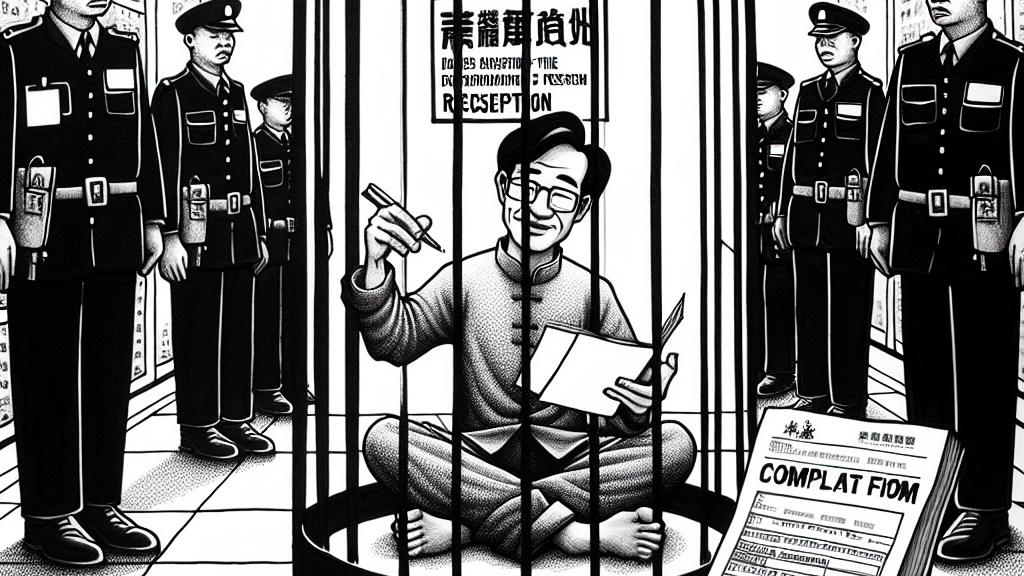Justice or Suppression? The Clash of Rights in Hong Kong’s Jails
Overview
- Owen Chow sentenced to three days in jail for passing an unauthorized document.
- Case underscores serious rights violations and restrictions in Hong Kong prisons.
- Activist's appeal shines a light on systemic issues within the legal framework.

A Tangled Legal Battle
In Hong Kong, pro-democracy activist Owen Chow recently received a three-day jail sentence for delivering an unauthorized complaint form to his solicitor, Phyllis Woo, during a legal visit at the Lai Chi Kok Reception Center. This incident occurred amidst a high-profile national security case charging him with conspiracy to commit subversion—crimes that could lead to life imprisonment. Chow's complaint was centered around the ban of books on Chinese Buddhism by the Correctional Services Department, which he believed unjustly infringed upon his rights to personal expression and access to literature. This altercation illustrates the severe constraints within the Hong Kong prison system, especially for those who oppose governmental authority.
Rights at Risk: Systematic Violations
Chow's experience reflects a troubling trend of systemic rights violations in Hong Kong's correctional facilities. Principal Magistrate Ivy Chui criticized Chow's actions as reckless, yet this framing risks overshadowing the crucial issue at hand: the treatment of prisoners and their right to express grievances. Chow argued that his case is merely the 'tip of the iceberg' regarding the obstruction faced by inmates trying to voice concerns about censorship and mistreatment. He described harrowing experiences where his cell was repeatedly searched, leading to punitive measures against him simply for asserting his rights. This creates an environment where dissent is actively stifled, limiting the freedom of speech typically expected even within a penal framework.
A Call for Justice: The Larger Fight for Rights
As Owen Chow prepares for further legal proceedings following his convictions, his legal team plans to appeal the recent sentence. This situation has sparked discussions not only about the intricacies of Hong Kong’s judicial system but also about the broader implications for activists fighting for democratic rights. Chow's plight emphasizes the urgent need for reform and a reevaluation of how the national security law is wielded against dissenters. His case—and those of many others—serves as a rallying cry for advocates demanding a return to respect for civil liberties, showcasing the essential struggle for justice in a society that purportedly values these rights. Ultimately, the treatment of Chow and other activists challenges Hong Kong's image as a progressive society and underscores the necessity for an empowered, rights-respecting legal framework.

Loading...